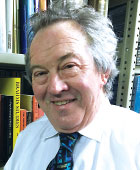Psychiatrist Heroes During the Coronavirus Pandemic
Abstract
Numerous psychiatrists have put their lives on the line to care for COVID-19 patients, and some have paid the ultimate price.

A common definition of a hero is a person noted for courageous acts that help others at great personal risk. Since the coronavirus pandemic, many physicians have been called heroes by the media for their work on the front lines. This is particularly true for those working in the emergency rooms or ICU units where COVID-19 patients are being housed and treated. Early on, especially in New York, many were without adequate safety gear, intensifying their personal health risks.
Generally, psychiatrists don’t work in those areas, though some do in very busy emergency rooms, and so I haven’t heard of any psychiatrist heroes on public media during these recent months. But we’ve had them. Here are some I’ve known of who either died from the virus or worked at great risk to their health:
The Coronavirus Deaths of Psychiatrists
There are several psychiatrists who I heard have died from complications of COVID-19. Three were elderly and no longer actively working as a psychiatrist: Robert Columbus Lancaster, M.D., Charles Rodney Smith, M.D., and Alyce Chenault Gullattee, M.D.
However, Ricardo Castaneda, M.D., was practicing right up until he died in New York on March 25 at age 64. He was a private practitioner and caring for patients near up to when he was infected. When he was hospitalized, he took his computer with him to maintain contact with his patients. His wife texted a last message of his: “I have patients I have to save.” Yet, he couldn’t be saved.
Much of the more detailed information I received on the pandemic and heroism came as an alumni from my medical school, Yale. Most personal to me was the death of Andrew (Drew) Slaby, M.D., M.P.H., Ph.D., from complications of COVID-19 on May 4. Though what he was doing in the pandemic time before his death was not made public, his last official job was in New York. He was renowned for his leadership in developing the field of emergency psychiatry, including his voluminous writing on that and related psychiatric topics. Working in emergency psychiatry has been one of the more potentially dangerous subspecialties in which to work, especially as knowledge and standards were only just developing.
One personal connection to Dr. Slaby is that he was from Milwaukee, where I have lived for 30 years. More important is that he was my first mentor when I was a third-year medical student at the Yale Community Mental Health Center, and he was my resident supervisor. He was charismatic, energetic, and a great source of knowledge. I thought I wanted to be like him. On May 4, when he died, I and my co-editors were supposed to be at a book release interview at the renowned 92nd Street Y for our book Anti-Semitism and Psychiatry: Recognition, Prevention, and Interventions. However, of course, that was postponed because of the pandemic. Though that felt unfortunate, it paled before the death of Dr. Slaby on the same day, reminding me of what is most important in life.
These deaths illustrate the importance of the new APA and Psychiatric News project of inviting members to write obituaries about members who have died; the obituaries will be posted on APA’s website.
High-Risk Work Settings
Also at Yale was Sofia Noori, M.D., a third-year psychiatry resident. She cancelled her wedding date to volunteer to treat patients with COVID-19. That was heroic.
Jeffrey Mufson, M.D., a fourth-year chief resident of the Psychiatric Consultation Service at Yale, volunteered to work on the Step Down Unit and assist with the medical management of both COVID and non-COVID patients. A related challenge to his own health and well-being was distancing from his family.
Many other psychiatrists either volunteered in medical units or were assigned to them. That required an expansion of the scope of practice, which reinforced the importance of our medical training.
Then there were the personal risks of working on psychiatric inpatient units. In my hometown public psychiatric hospital, in April there were reports of several patients with COVID-19, but staff requests to at least use self-obtained protective gear was apparently turned down, leading to the quarantine of two individuals. Being able to manage uncooperative patients, sometimes in a new facility that had to be used temporarily because the prior one was being used for COVID-19 cases, added to the medical risks.
Another Kind of Heroism
Now I am clinically retired and at an age and health status that increase my risk for COVID-19. But, once upon a time, I was designated in 2002 as one of the “Heroes of Public Psychiatry” by the speaker of the APA Assembly. That designation seemed somewhat undeserved as I wasn’t putting my life at risk by working with the poor and underserved, that is, until about 15 years later when I worked part time at a medium security prison.
Perhaps there is a better and broader definition of a hero than courageous acts to help others at personal risk. The psychologist Philip Zimbardo, Ph.D., developed the Heroic Imagination Project for producing “heroes in waiting.” In this conception, heroes can include standing up for what is right and just. That means any psychiatrist who is doing so during the pandemic and afterward, especially for anti-racism, is a hero. ■



